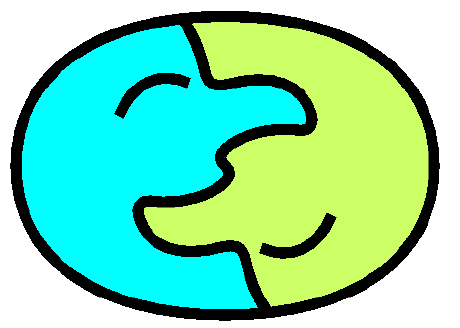Islam from the perspective of Bliss Theory
...
The five pillars of Islam are said to be statement of belief, prayer, charity, fasting, haj. These are assertions that one's egotistical self does not own, is not in charge of, and must submit its control over, respectively, one's beliefs, thoughts, property, body, and life plan. Nothing could be a more thorough expression of Bliss Theory.
Saying no more or less let me restate the above.
Statement of Belief: Is it not so, that taking upon oneself the beliefs of a universal religion is (intended to be) the same as abandoning one's personal beliefs that support one's personal moral vision at every level? They are (intended to be) the same.
Prayer: Is it not so, that the inner essence of prayer is just the humble submission of one's thinking process to the ritual, understood-as-sanctified thoughts that constitute one's prayers, or the emotional engagement with humility and submission in whatever inner form? That appears to be a form of inner surrender according to Bliss Theory, since it rejects the ways of ego; it shuts down -- when successful -- the operations of egotistical story-telling and self-attribution, and therefore is a doorway to states of disinhibited emotional flow, to the divine?
Charity: Is it not so, that the inner essence of charity is the abandonment of the sense of ownership over property? The cessation of the ego-story which counts one's balance and regulates one's feelings based on its size or increase or decrease? Doesn't charity find its inner joy in the separation of oneself from one's egotistical property relationship?
Fasting: Is it not so, that the inner essence of fasting is the willingness to submit to a higher purpose than one's fleshly desires and hungers, at least to a degree or for a time to be able to see oneself as other than identified with the body and its urgent, raging, but very self-limiting, desires? Is this not very close to having discipline in reducing the control of ego desire upon one's body? Is this not surrender of the body, in this higher sense?
Haj: Is it not so, that the inner essence of pilgrimage is a life plan submitted to an ego-free purpose? Is it not as selfless as service? Does each step on the trip not indicate action-within-selflessness to you, and allow you to abandon concepts, roles, and attributions within a surrendered state of being that nonetheless includes all the actions of life, travel, eating, sleeping, shared activity, that is, activity within a life plan? Is it not in its deeper essence the conversion of ego story to surrenderedness, in the domain of life's plan of activity? Don't we want to make Haj, pilgrimage, of our whole lives?
I think so. I hope this has captured the inner essence, that particular rationality by which the high virtues bring us to emotional disinhibition, to flow state, to bliss, serenity, and transcendence. Which in certain forms are captured and expressed in Islam, as well as the other religions (all subject to Veatch's Razor). If so, then I hope Islam will see itself as being seen and understood, also that its positive spiritual values and significance, if not its worldly restrictions and cultural laws, are shared and accepted, and that our conversations may join into a single conversation of the Good, the Beautiful, and the True, together, in the peace of mutual understanding, respect, and inspiration.
